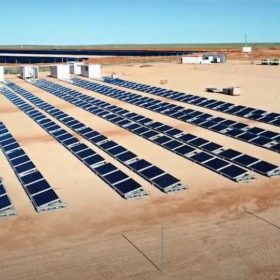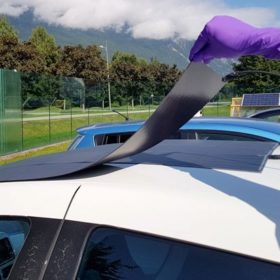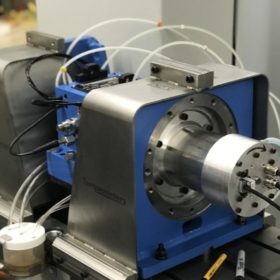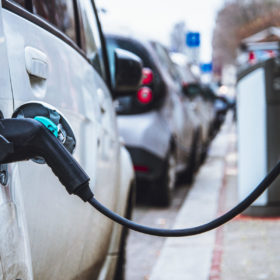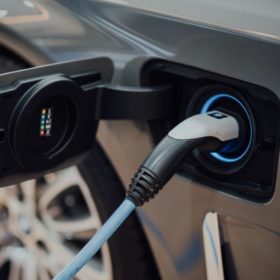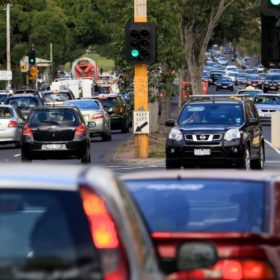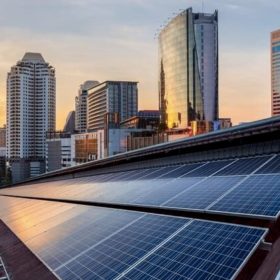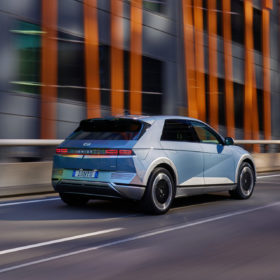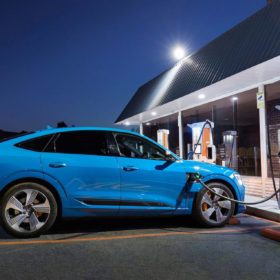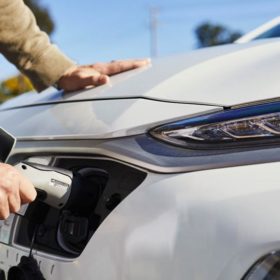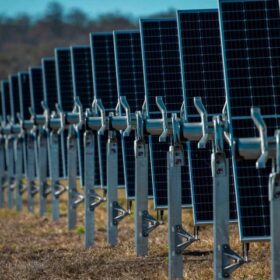Oz Minerals moves on plans for ‘world’s largest’ off-grid hybrid project
South Australia resources company Oz Minerals has given the green light to a $1.7 billion copper and nickel project in Western Australia that is to be powered by a mix of solar PV and wind generation which the miner believes will become one of the largest, off-grid hybrid projects in the world.
Vehicle-integrated solar kit may reduce frequency of recharging by 14%
Developed by the French research institute Liten, the prototype kit consists of a 145 W PV panel, a magnetic rear panel, and an MPPT charge controller. It also includes a battery and a micro-inverter that can be used to inject the stored energy into the grid when the vehicle is recharged.
UNSW engineers build high-speed motor to boost EV range
A team of engineers from the University of New South Wales has taken inspiration from a bridge in South Korea to develop a new magnetically driven motor which has the potential to increase the range of electric vehicles.
Australia is failing on EVs. California shows it’s possible to pick up the pace
Among the many similarities between California and Australia, both are impacted by bushfires and climate change, and both are home to larger cars and trucks than is the norm in developed countries. They are dissimilar, though, when it comes to electric vehicles and vehicle regulations. While California has been pursuing low-carbon and electric vehicles for decades, Australia has trailed most developed nations.
Bowen unveils emissions strategy to drive EV uptake
The Australian government will seek to introduce vehicle fuel efficiency standards to help get more electric vehicles into the domestic market and improve affordability of as part of a push to encourage more people to take up the low-emissions cars.
Who’s holding back electric cars in Australia? It’s time to clear the road
New analysis this week found strong fuel efficiency standards would have saved Australia $5.9 billion in fuel costs and emissions equal to a year’s worth of domestic flights if the policy was adopted in 2015.
CEFC commits $200 million for SME investments in clean energy
The Australian government’s green bank has extended its collaboration with the Australia and New Zealand Banking Group, committing up to $200 million as part of a clean energy asset purchasing program to help Australian businesses invest in energy efficient and renewable technologies to cut costs and reduce emissions.
ESB drives discussion on integration of EV smart charging
The Energy Security Board has declared the impending electrification of Australia’s transport fleet has the potential to revolutionise the way consumers receive and use energy and has issued a call for input on how best to support the effective integration of smart charging for electric vehicles into the National Electricity Market.
ACT accelerates move to EVs with plan to ban new petrol cars from 2035
The Australian Capital Territory is set to become the first Australian state or territory to phase out fossil fuel-powered vehicles with the government announcing plans to put the brakes on the sale of new petrol and diesel-fuelled vehicles from 2035.
Electric vehicles pass remote road test say ANU researchers
Researchers from the Australian National University have declared a major roadblock to the electrification of the nation’s transport sector has been removed with a new study showing electric vehicles can handle the long distances required to travel to essential services in Australia’s remote and regional areas.
